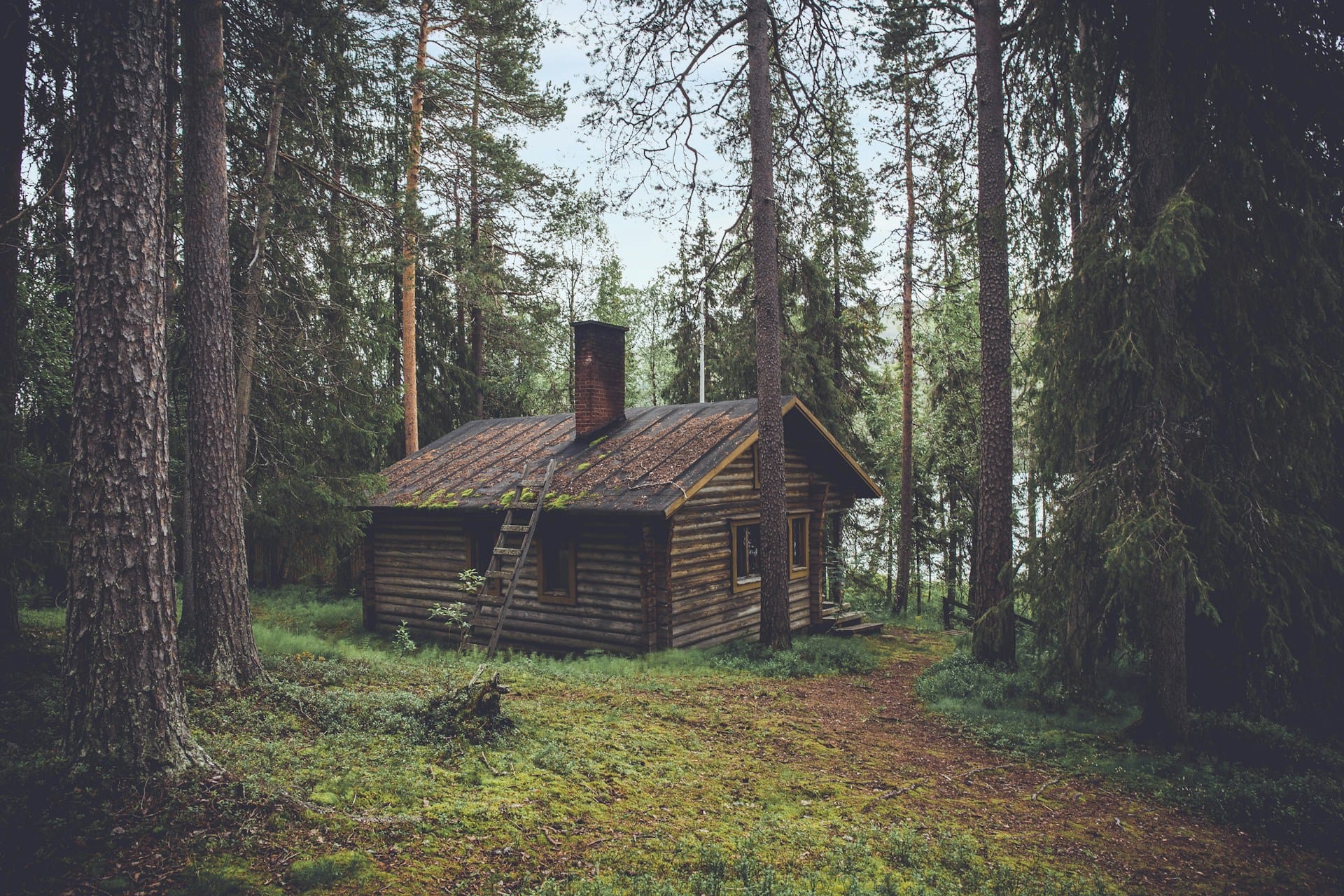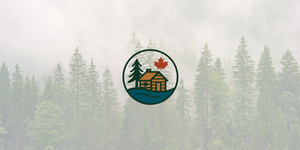Every summer, millions of Canadians pack up their cars and head to their beloved retreats in nature. But what they call those getaways – be it a cottage, cabin, camp, or simply “the lake” – depends a lot on where in Canada they’re from.

The Cottage: Ontario’s Pick
In Ontario, the term “cottage” reigns supreme. Ask a Torontonian or Ottawa resident with a recreational property about their weekend plans, and you’ll likely hear, “We’re going up to the cottage.”
For many Ontarians, “cottage” evokes a cozy second home by a lake – think Muskoka chairs on a dock and loons at dusk. The cottage tradition is so strong that highways heading north from Toronto clog up on summer Friday afternoons with city-dwellers en route to “cottage country”. The May 2-4 long weekend (around Victoria Day in May) is seen as the unofficial start of cottage season, when families open up their cottages after the winter.
One linguistics survey exploring what Canadians call their wilderness abodes found Toronto respondents 0% likely to say “cabin,” preferring “cottage” every time.
Ontario’s "cottage" culture isn’t just about nomenclature – it’s a huge part of the province’s identity. Areas like Muskoka, the Kawarthas, and Haliburton are famous for their dense concentration of cottages and summer homes. Many of these cottages are quite comfortable (some would even say luxurious), outfitted with all the amenities of home. In Muskoka, it’s not uncommon for “cottages” to be multi-bedroom houses with Wi-Fi and wine cellars. Even the Prime Minister of Canada has an official cottage.
Despite this, Ontarians still affectionately use the humble term cottage. As one Ontarian we spoke to quipped, if it’s in Ontario and near a lake – no matter how fancy – it’s a cottage.

Camp: Northern Ontario & Atlantic Canada
The word “camp” has its place in Canadian parlance too.
Northern Ontarians favour camp - and they're not alone. Parts of Atlantic Canada also use “camp,” especially in New Brunswick. About 29% of New Brunswickers refer to their summer place as a “camp” (though a majority still say cottage). In NB, “camp” often implies a more backwoods, off-grid retreat – similar to the Northern Ontario usage.
What exactly is a “camp”? There’s no strict definition, but typically it means a relatively basic cabin, possibly originally built as a hunting camp. A New Brunswicker might invite you “down to the camp for the weekend,” meaning their little hideaway in the woods or by a stream. The term carries a rustic connotation – you might picture no plumbing, a woodstove for heat, and plenty of nature.
As one discussion described:
Camp = back in the woods, no power, no running water… a beautiful, simple getaway.
In Newfoundland and Labrador, interestingly, people don’t say “camp” – they have cabins. And in Nova Scotia and Prince Edward Island, “cottage” tends to be the go-to word. In fact, a linguistic survey noted “cottage” is dominant in PEI (67%) and Nova Scotia (78%), even if the style of those cottages may range from quaint seaside shacks to full-fledged houses. Meanwhile, parts of rural Cape Breton (NS) or other Atlantic areas might still use local terms like “camp” in pockets, but “cottage” is widely understood across the Maritimes as the place you head for summer relaxation.

The Cabin: Out West (and in Newfoundland, too)
Travel west of Ontario, and you’ll find almost everyone prefers the term “cabin.” In Western Canada – notably British Columbia, Alberta, and Saskatchewan – people talk about their cabins. “We’re opening up the cabin” or “spending a week at the cabin” is a common phrase from the Prairies to the Rockies. A cabin might be on a lake (especially in the Prairies) or in the mountains (as in BC or Alberta), but the word “cottage” just doesn’t sound quite right to western ears. One survey found effectively 0% say “cottage”.
One Albertan online said,
A cabin is any vacation home at a lake, whether it’s an 100 year old log cabin or a new-build mansion on the waterfront.
In B.C.’s Vancouver/Victoria area, “cabin” was also strongly favored (72% in that survey).
The preference for “cabin” out west might just reflect the different geography and pioneer history. Westerners picture log cabins in the forest or by alpine lakes. Even if many modern “cabins” are quite upscale, the term still evokes a more frontier spirit. Calling it a “cottage” just wouldn’t feel accurate when you’re far from any cute coastal village or gentle Muskoka lake – cottage has an eastern vibe, whereas cabin feels western.
Interestingly, Newfoundland and Labrador aligns with Western Canada on this. Newfoundlanders overwhelmingly say “cabin” for their recreational homes (85% according to one survey). So if a St. John’s resident says “we’re heading to the cabin this weekend,” they mean their little country place, perhaps by the ocean or in the woods. Newfoundland’s cabin culture is strong – many families have a small cabin in the interior or along the coast where they go to pick berries, fish, and boil up a scoff (cook a meal) outdoors. The term “camp” isn’t really used in NL; it’s cabin through and through.
And while a few folks might use “lake cottage” or “summer house,” these terms are relatively rare in Canada. The Boberg survey (a McGill linguist’s study of Canadian vocabulary) essentially showed a west/east split: “cabin” is greatly preferred in Western Canada and Newfoundland, whereas “cottage” dominates in Ontario, Quebec, and the Maritimes.

“At The Lake”: Manitoba & Saskatchewan
If you have friends from Manitoba or Saskatchewan, you may have heard the phrase “the lake” used as shorthand for a vacation home. For example: “We’re spending August at the lake,” or “Come out to the lake this weekend!” In these Prairie provinces, many families own or rent cabins by one of the numerous lakes (Lake Winnipeg, Lake Manitoba, Last Mountain Lake, Lac la Ronge – take your pick!). Over time, “the lake” has become a metonymy – it doesn’t even need a specific name attached. It just means the place where our cabin/cottage is.
Manitoba and Saskatchewan residents say “cabin” in many cases, but “the lake” is a beloved expression. In fact, Manitobans use all three terms to some extent – cottage, cabin, and the lake – but “the lake” is especially common in conversation. It’s a bit of a peculiarity in those provinces’ lexicon that emphasizes the destination (the lake itself) rather than the building.
Why “the lake”? Many communities revolve around lake life. In Saskatchewan, for example, folks from Saskatoon or Regina often have lake lots or cabins passed down through generations at any of the province's over 100,000 lakes. There’s a proud tradition of DIY cabin-building and multi-generational family cabins on the Prairies. Because lakes are the focal point (in relatively flat, landlocked provinces), people default to saying the lake. It implies not just the cabin, but the whole experience – canoeing, fishing, barbecues, and sunsets on the dock.

Chalet?
Quebec has its own term too – “chalet.” Anglophone Quebecers might say cottage, but many will also refer to a ski chalet or summer chalet. In Montreal, “chalet” is common, partly to avoid confusion since in local usage a “cottage” can also mean an urban two-story house style. So if you hear about someone’s chalet in the Laurentians, it’s the same idea – their country house for recreation.
More Than Just Words

Whether you invite friends to your cottage, cabin, camp, or lake, the underlying sentiment is the same. Canadians treasure their time in nature.
The whole phenomenon of heading to our summer getaway on the weekend is a central part of the Canadian experience. It doesn’t matter what we call it – camp, cottage, cabin, or the lake – it brings together family and friends.
There are, of course, endless debates (often good-natured) about the “right” term. Someone from Calgary might chuckle at the word cottage as too fancy, and someone from Montreal might find cabin too rustic for their taste. These nuances even get attention in linguistics research. A McGill University survey of 1,800 Canadians confirmed clear regional splits in vacation-home vocabulary. The choices we make between camp, cottage, and cabin are, as a CBC story noted, really a story about cultural geography.
No matter what you call your getaway spot, the goal is the same: to enjoy the great outdoors and make summertime memories.
Have a great summer at the cottage… or should we say cabin?






Join the Conversation